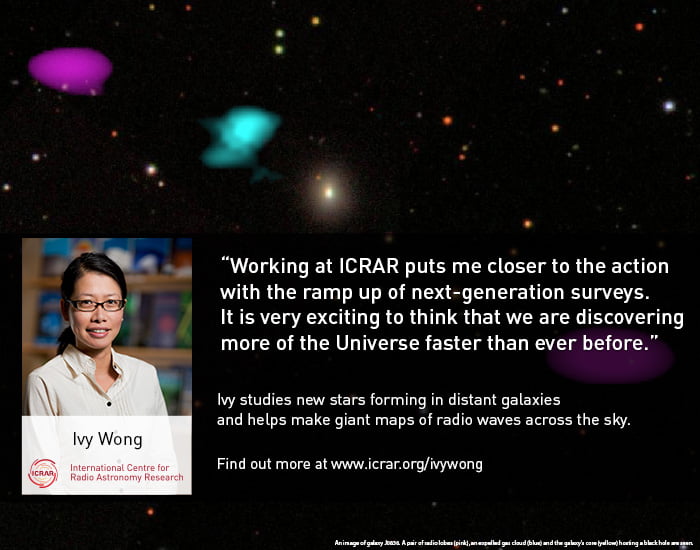Dr Ivy Wong’s research can be distilled to one simple question; how do galaxies start and stop forming stars?
Ivy studies material spewing from supermassive black holes in distant galaxies, and looks at what happens to the gas galaxies need to survive.
“ I want to know what triggers star formation within individual galaxies.” Dr Ivy Wong
“Is it nature? Is it nurture? Does the galaxy care what environment it lives in in the grand scheme of where it is in the Universe?”
“When does a galaxy decide to grow a supermassive black hole and how does that happen?”
Dr Wong uses data from instruments like the Parkes radio telescope in regional New South Wales and nasa’s Galaxy Evolution Explorer satellite, and is also involved in the science commissioning for the Australian ska Pathfinder (askap) telescope.
She is the project scientist for Radio Galaxy Zoo, a citizen science initiative that has seen volunteers search more than a million images of the sky and identify more than 50,000 objects likely to be jets from black holes.
Dr Wong says the rate of scientific output is much quicker than ever before and the next big discoveries will come from radio astronomy.
“Working at icrar puts me closer to the action with the ramp up of next- generation surveys such as wallaby, emu and dingo, all of which use the askap telescope in Western Australia,” she says.
“It is very exciting to think that we are discovering more of the Universe faster than ever before.”
